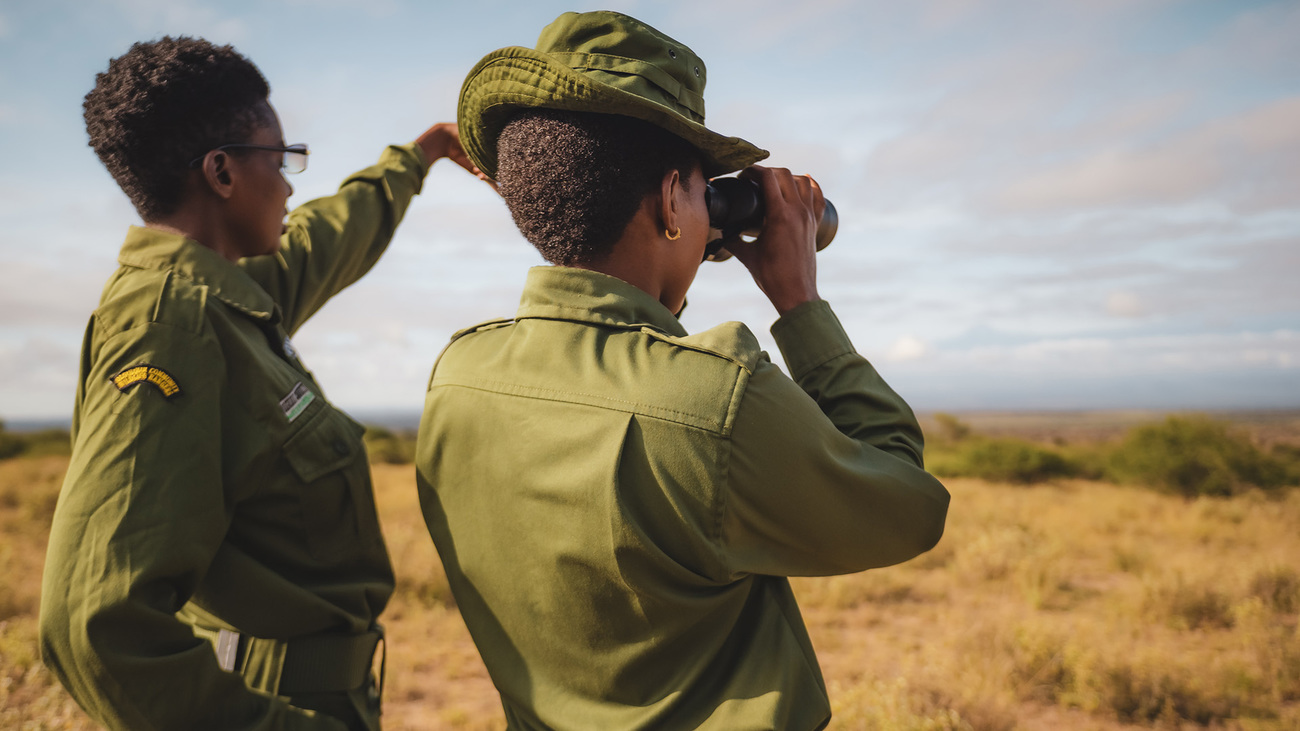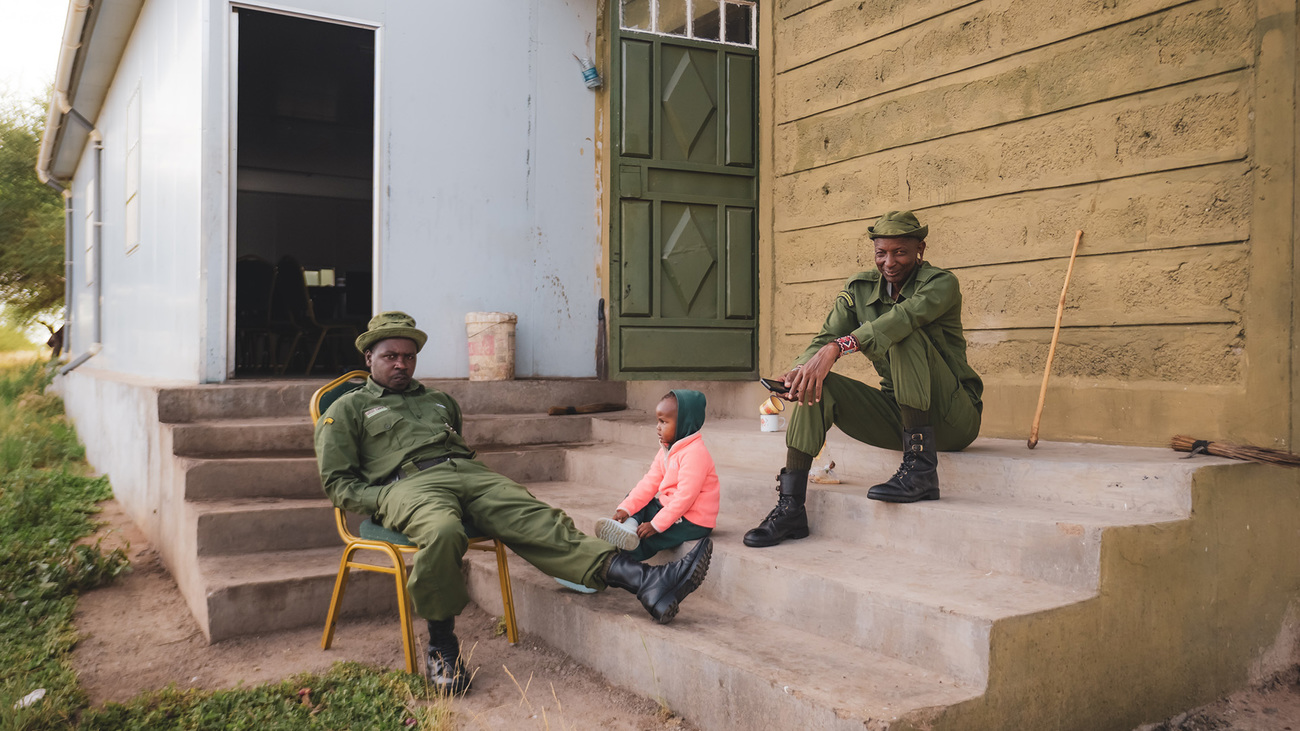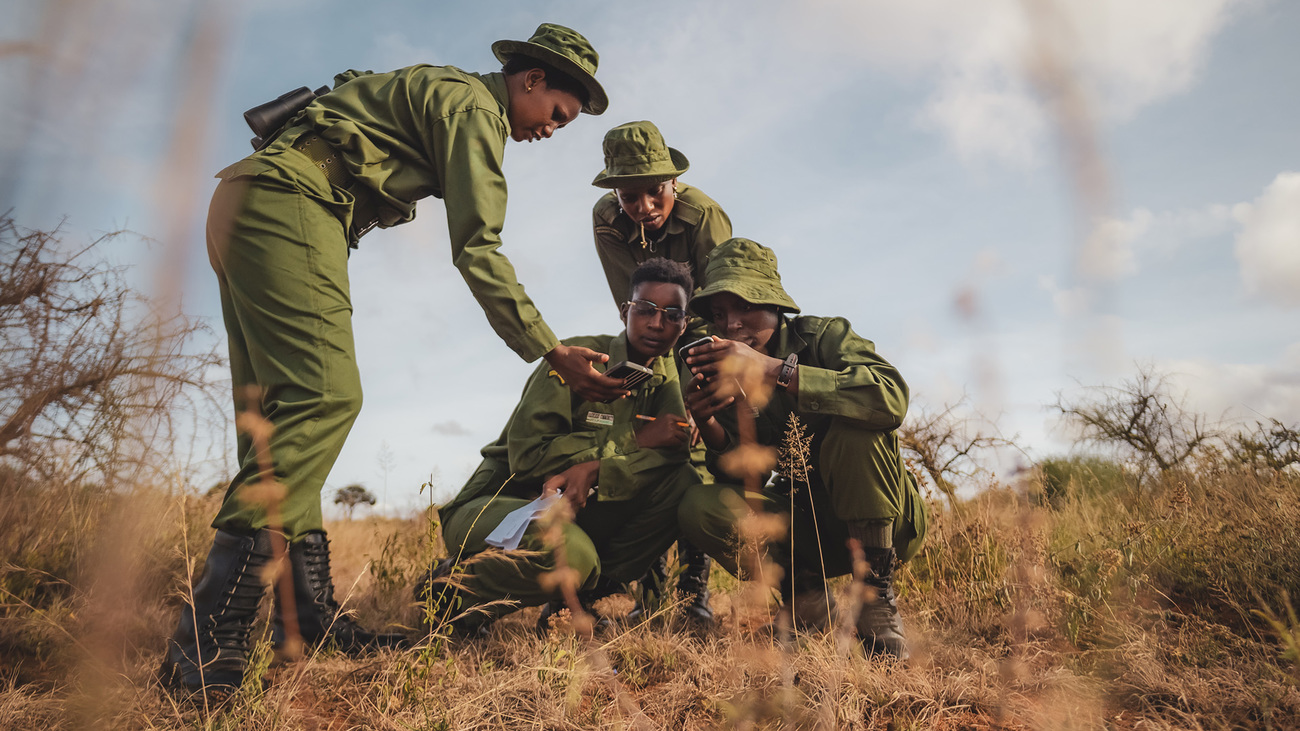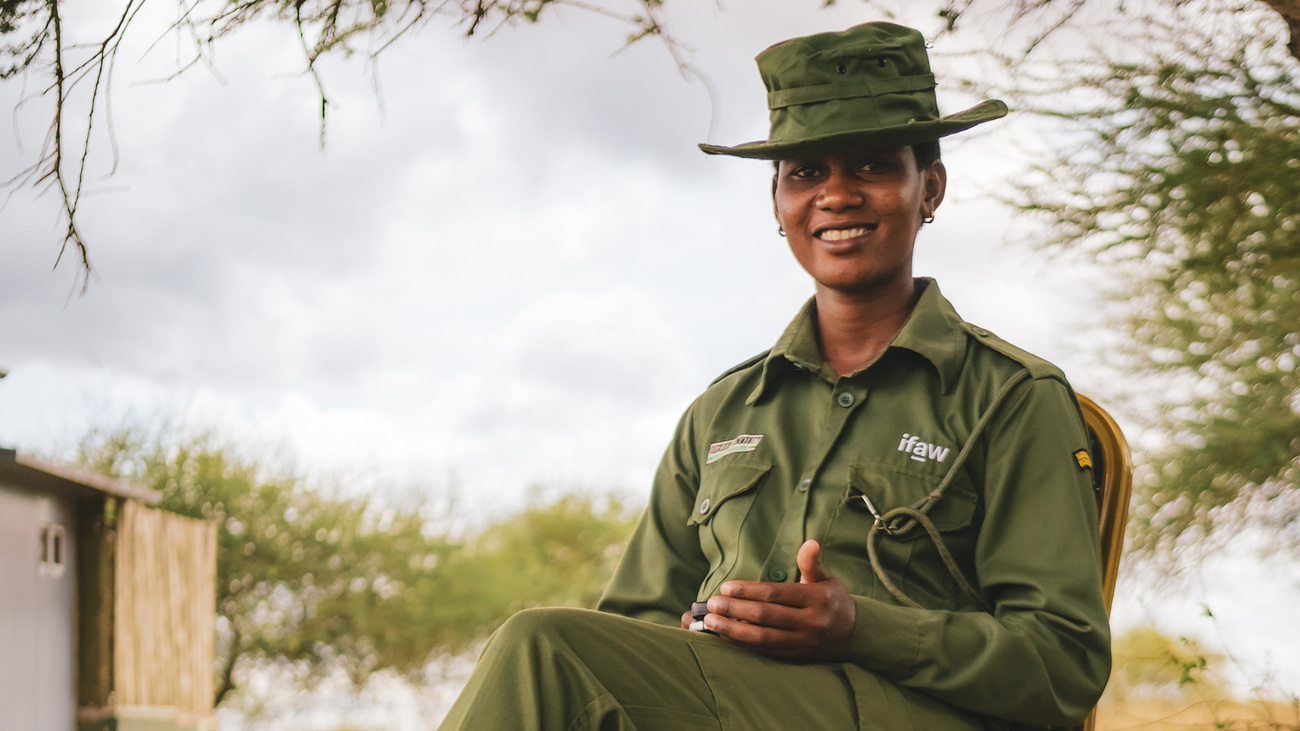Team Lioness - Kenya
We're transforming what it means to be a woman rangerA day with Team Lioness: one of Kenya’s first all-women wildlife ranger units
A day with Team Lioness: one of Kenya’s first all-women wildlife ranger units
By Florian Kriechbaumer, wildlife photographer and winner of the IFAW–Pexels ‘Our Wild World’ competition
In May 2025, I visited Amboseli National Park, with the goal to document its incredible elephants and IFAW’s conservation work.
On my second day in Amboseli, we visited one of IFAW’s most well-known ranger bases—the home of Team Lioness, an all-female ranger team, which began its duty in 2019 and now consists of 17 members. With the team, I travelled north of the National Park into the surrounding community lands.

Team Lioness’ story is a special one: many of these rangers are the first women in their families to secure formal employment, and at the same time, they break the mould of a traditionally male-dominated domain, protecting their communities against poaching and mitigating human-wildlife conflict.
Although it’s difficult to connect with people in just a few hours—especially while they’re focused on the important tasks at hand—I was still happy and grateful they let me into their routine. Meeting these women and hearing their stories, it is no wonder they inspire young people in their communities every day.
A day in the life of a wildlife ranger
One of the rangers briefed me on her day’s typical activities: waking up at 6:30 a.m., exercise and morning tea, and then patrol, which involves a 20-kilometre walk. Lucky for me, they cut their route a bit shorter that day.
When we left for patrol, two male rangers stayed behind and took care of the child of one Team Lioness member, Evelyn. She told me how it’s great for her to be able to go to work, knowing that her young one is safe at the base.

As we explored the area, another ranger, Leah Mrera, shared that they look for tracks to identify animal activity, with the goal of determining the number of animals moving in the conservancy, watching out for any sick animals or other unusual signs. I watched them map wildlife sightings and communicate findings via radio, using GPS coordinates.
We spotted plains zebras, gerenuks, Masai giraffes, and other wildlife from a distance. While encountering more dangerous animals like buffalo or lions during the day is uncommon, we remained on high alert. But walking through the bush on foot is a very different and much more intimate experience than in a safari vehicle and brings you much closer to nature.

For wildlife and for communities
After the patrol, I had the chance to spend more time with the women. They revealed some of their motivations for becoming rangers, hurdles they faced in their communities, and their goals for the future.
Leah shared that she wants to pass the knowledge she has gained in her job to her children, so they would also gain an interest in preserving wildlife for future generations. Human-wildlife conflict is one of the biggest challenges she sees—it is a constant struggle to prevent and mitigate the consequences of, for instance, lions preying on goats and cows, while fostering a positive attitude towards wildlife in communities.
I asked Leah what her favourite animal was—unsurprisingly, her answer was the lioness, because ‘she’s a hardworking woman.’

One of the team’s newest members, Doreen, is 24 years old and joined the unit in January. She explained that the reason she became a ranger was to protect the wildlife and culture of her homeland, something she has always cared about. After working jobs in retail and hotels, she discovered the opportunity to join Team Lioness. Though she didn’t face a lot of resistance from the men in her life, they told her the work would be hard. Doreen laughed as she told me she finds it quite enjoyable.
Despite her positive attitude, life as a ranger can be extremely tough. Rangers still often lack even basic resources to do their job, spend a lot of time apart from their families, and face dangers from poachers as well as wild animals, for instance. But well-trained, well-equipped rangers are crucial assets in the fight against wildlife crime and in mitigating human-wildlife conflict—they are conservation heroes that deserve to be recognised.
Related content
Every problem has a solution, every solution needs support.
The problems we face are urgent, complicated, and resistant to change. Real solutions demand creativity, hard work, and involvement from people like you.